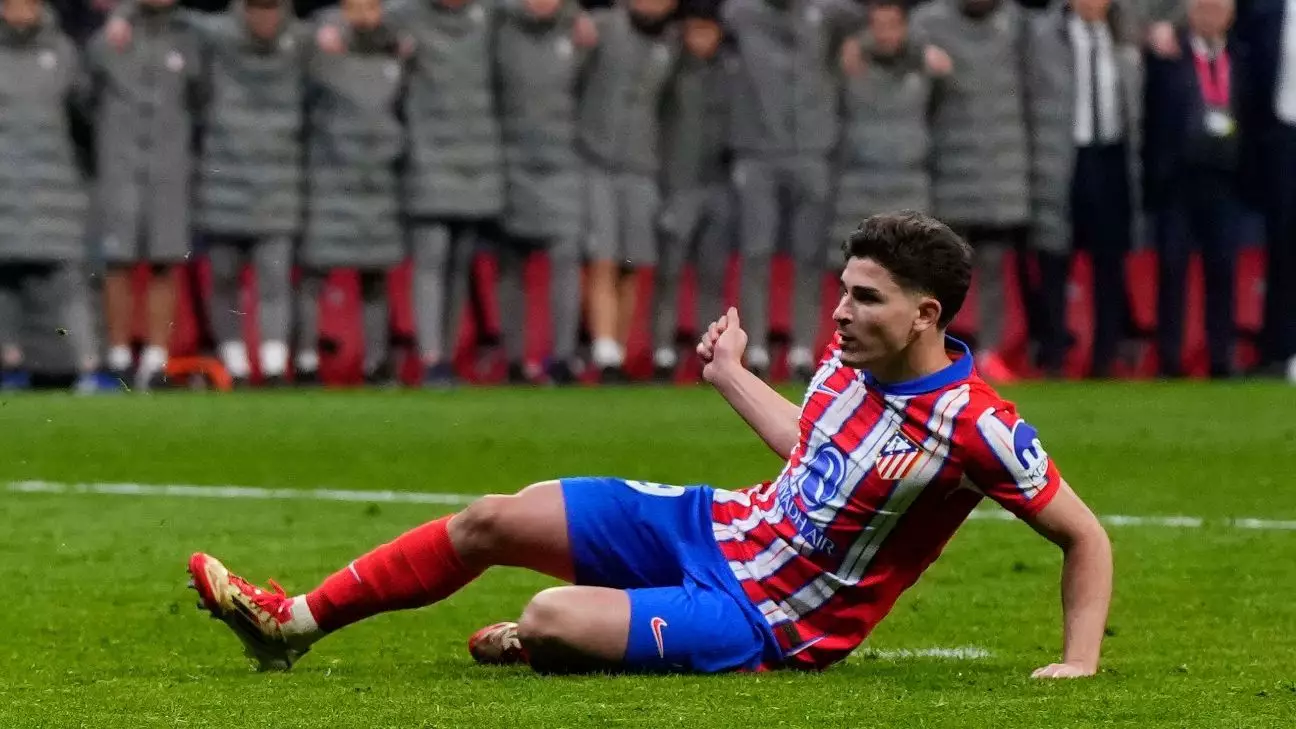In a significant move that could reshape perceptions around the penalty shootout, UEFA recently updated its regulations concerning penalty kicks. This decision came in light of Julián Álvarez’s controversial double touch that inadvertently cost Atlético Madrid their Champions League aspirations. The incident spotlighted an area in the rules that many in the soccer community viewed as overly confusing and inconsistently applied. The clarification, which takes effect immediately, emphasizes that a penalty kick resulting from an accidental double touch should now be retaken if the attempted shot results in a goal.
Why This Matters: Refereeing Consistency
The instigation for change highlights a crucial aspect of soccer: the integrity of game officiating. Prior to these adjustments, the application of Law 14, which governs penalty decisions, was shrouded in ambiguity. Referees had often been left to interpret the rules based on their discretion, leading to widely varying decisions across different matches. This vagueness was put to the test during Atlético Madrid’s shootout against Real Madrid, where Álvarez’s slip caused reflective outrage amongst players and fans alike. Such inconsistency can be detrimental, not only to the teams directly involved but also to the spirit of fair play that the sport is built upon.
The New Guidelines: What They Entail
The revised rules, released by IFAB—a body comprising FIFA and the four British football associations—explicitly state that if a penalty is scored following an accidental double touch, the referee must order a retake of the kick. Conversely, if the double touch results in a miss, it will be logged as a failed attempt. This new standard aims to differentiate between intentional fouls and unintentional errors, urging players to maintain fairness despite high-stakes scenarios. Moreover, the same directive will be applicable not only in UEFA competitions but also during the forthcoming Club World Cup.
The Ripple Effects: Culture of Scrutiny and Education
One of the most pertinent outcomes of this clarification is the change in the culture surrounding officiating. As matches grow increasingly scrutinized, players and coaches will likely need to educate themselves about these nuanced rule changes. The importance of this education cannot be overstated, as it forms the basis for players’ in-game decision making and overall strategy during critical moments. The emphasis on proper interpretation signals the need for ongoing dialogues about both rules and the officials who enforce them.
Cultural Impact: The Player’s Perspective
For players like Álvarez, this change represents a second chance that adds new layers of complexity to their approach to penalty kicks. Understanding that a slip due to nerves or pressure won’t skew results unfairly is paramount. This newfound clarity may also encourage players to push boundaries without the fear of punishment for unintentional mistakes, potentially leading to more dynamic and unpredictable moments in soccer. It’s a nuanced balance between risk-taking and caution that could redefine the shooter’s mindset in penalties moving forward.
Through these transparent discussions and rule clarifications, soccer is stepping toward a more equitable future—a future where players can express themselves freely while maintaining the integrity of the game.

